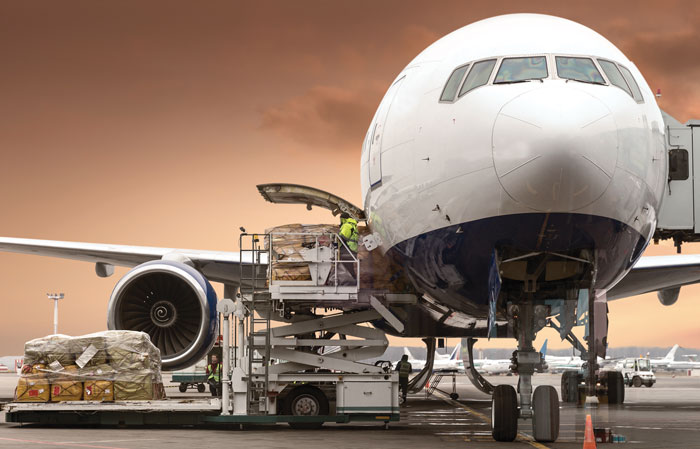Revolutionising the cargo industry – Brussels Airport
- Like
- Digg
- Del
- Tumblr
- VKontakte
- Buffer
- Love This
- Odnoklassniki
- Meneame
- Blogger
- Amazon
- Yahoo Mail
- Gmail
- AOL
- Newsvine
- HackerNews
- Evernote
- MySpace
- Mail.ru
- Viadeo
- Line
- Comments
- Yummly
- SMS
- Viber
- Telegram
- Subscribe
- Skype
- Facebook Messenger
- Kakao
- LiveJournal
- Yammer
- Edgar
- Fintel
- Mix
- Instapaper
- Copy Link
Posted: 28 March 2017 | Arnaud Feist | CEO | Brussels Airport Company | No comments yet
Arnaud Feist, CEO of Brussels Airport Company, reveals the airport plans to further develop its cargo activities.


At the heart of Europe, Brussels Airport is an important growth engine for Belgium. The airport has an ambitious plan for the future to accommodate the expected growth in air traffic in the next 25 years. The Strategic Vision 2040 connects Belgium and Europe to the rest of the world and has the potential to double the number of jobs on and around the airport site to 120,000 by 2040.
In the coming 20 years global passenger traffic is expected to grow by 3.8%. Cargo traffic, on the other hand, is expected to grow by 4.7% over the same period. Consumers will increasingly expect the parcel with their newest smartphone, clothing items or book they ordered to be delivered to them in under 24 hours. People consider it normal to find exotic fruits and special flowers in their local shops and the pharmaceutical industry is recording strong growth and demands good air connections.
To drive forward the airport’s activities and uphold the connectivity and the economic growth of our country, the infrastructure of Brussels Airport will need to be adapted. The runway infrastructure will need to be upgraded in order to step up capacity. This is planned from 2025 onward, after a first optimisation phase of the existing infrastructure by 2020. Two additional piers are also due to be built to improve traveller comfort.
As the Belgian economy is an open economy, which is heavily focused on exports, highly efficient logistics are required. Air cargo transport plays a central role in this. Key industries in our country, including pharmaceuticals, chemicals, biotech, e-commerce and perishables rely on a fast, top-quality airport to ship or to receive their products. Especially for high-quality and temperature-sensitive goods that need to be transported quickly. Our cargo zone will be upgraded and converted to accommodate new needs and to support the key sectors in our country.
As the Belgian economy is an open economy, which is heavily focused on exports, highly efficient logistics are required.
BRUcargo: A dedicated and integrated logistics platform
Brussels Airport is a preferred distribution platform centrally located in the most important economic area of Europe. The combination of traditional freighter airlines, a regional integrator hub and belly cargo capacity as well as a superior road network provides excellent connectivity opportunities. The cargo zone developed at Brussels Airport groups all air cargo stakeholders: airlines, forwarders, handling agents, general sales agents, customs personnel, FASFC border inspection, perishable centres, trucking companies, GDP-compliant infrastructure and IT platforms.
Brussels Airport Company, the airport operator, plays an active role of facilitator, bringing these different parties together in a community network with a long-term vision on development. A cargo community platform in the cloud has been built to allow all stakeholders at the cargo zone to enjoy additional logistics services and manage big data. Next to a digital platform, the non-profit organisation Air Cargo Belgium was created to bring the various companies at BRUcargo together for joint projects with a view to forming an integrated logistics chain. Together, the members identified 11 fields of co-operation to be tackled by a steering group: ranging from a pharma or PER group to operational efficiency or e-freight. Air Cargo Belgium also works together with schools on training, awareness and even on developing a master degree in air cargo logistics to form future generations of workers.
The creation of a digital and human community network at Brussels Airport enhances highly efficient transit operations. Flexible customs and border inspection authorities, committed to air cargo 24/7 at Brussels Airport, guarantee swift handling of cargo.
Pioneer in pharma and perishables handling
The large logistics platform is crucial for the import and export of goods in Belgium. Key industries rely on Brussels Airport for the rapid and high-quality shipment or receipt of goods from more than 200 direct destinations. Brussels Airport, together with several stakeholders at BRUcargo, created a common audit programme and certification for the handling of pharmaceuticals. After collaboration with IATA this programme became the official IATA CEIV certificate and standard for pharmaceutical handling. Today, this programme is globally recognised as the framework of reference for the transport of temperature-sensitive products such as medicines and vaccines. In 2014, Brussels Airport was the first airport in the world with logistical companies in the full chain being certified for temperature-sensitive transport in a cool chain. With 19 certified companies, we are not only the first but also still the by far largest certified community in the world.
Together with other airport communities that are certified, we are now creating a new organisation to further work on end-to-end solutions together with the pharma shippers. At the end of 2016, Brussels Airport and Miami International Airport together created Pharma.Aero, which was soon after joined by Singapore Changi Airport and Sharjah Airport. To further support and service the pharmaceutical industry Brussels Airport developed the ‘Pharma Airside Transporter’; a trailer on which a refrigerated unit with insulated walls is mounted. What is really innovative is the technology that allows the temperature and location of the refrigerated transporter to be monitored in real time.
BRUcargo 2040: Upgrade and conversion of cargo zone
Nowadays, people are increasingly ordering goods online and expect the shortest possible delivery time for their new purchase. Even if these products come from the other side of the world. Companies also order the goods they need on the worldwide market and demand fast delivery. Brussels Airport is already making that possible today. With additional investments in storage capacity in the cargo area, modifications to the runway infrastructure and the further development of the economic fabric on the airport, Brussels Airport will be in a position to provide even better service in the decades ahead. To make the logistics chain at the airport even more efficient and to accommodate future growth, Brussels Airport intends to upgrade its cargo area BRUcargo and replace the old buildings with modern, energy efficient infrastructure.
New hub building
At the entrance to BRUcargo there will be a new building in which all non-cargo-related activities come together, such as service providers, car parks and a supermarket. Here, passengers will also be able to check in their luggage and take the free airport shuttle to the terminal. Airport staff will also benefit from this free bus service. In the offer there will also be a petrol station that passengers, cargo companies and their employees can use, as well as people from the vicinity. The petrol station must offer existing fuels and alternative sources of energy such as CNG or LNG, electricity or hydrogen.
Reorganisation of the roads
The organisation of the cargo area follows the grid principle of parallel, straight roads along which different types of buildings can be accommodated, such as (cold storage) warehouses, offices, buildings for handling agents, aircraft hangars, etc. The available space will be optimally used and the traffic flows will remain smooth. The construction of the buildings will take account of the environment. Thus, the buildings adjacent to the tarmac will be as close to one another as possible, so as to form a wall against ground noise. This zone will accommodate all the companies that transport, package and store freight. In the second line, there will be parallel streets perpendicular to the first line. This will ensure easy road access for trucks. These streets will be able to accommodate logistics companies or warehouses for goods with a longer storage period. For airlines with express delivery services there is a separate area which can be developed according to future needs.
‘Greening’ the area
Green landscape elements will be integrated when reorganising the cargo area. In particular, there will be pedestrian and cycle paths in a green strip of trees and verges, little parks and street gardens. The BRUcargo freight area brings together different players in the logistics chain. A reorganisation of the area will increase efficiency and improve cooperation. In this way, Brussels Airport can offer quality service to its customers and at the same time create a pleasant environment for the thousands of people working at BRUcargo.
ABOUT BRUcargo
- 130 ha of land
- 120,000m² of cargo aprons
- 12 full freighter aircraft stands
- 95,000m² of warehouses with direct ramp access
- 180,000m² of offline warehouses
- Temperature controlled warehouses
- Direct access to the highway system
- Over 100 large forwarders present on site
- A secured logistics area
- Independent warehouse handlers
- Customs flexibility 24/7


ARNAUD FEIST has been Chief Executive Officer of Brussels Airport Company since 2010. In 2005, he joined the company as Chief Financial Officer shortly after the privatisation of Brussels Airport. Prior to joining Brussels Airport, Arnaud held several management positions in Finance, M&A and IT, before becoming Vice-President Finance & ICT for the European division. From June 2013 to June 2015, Arnaud was Chairman of the Board of ACI Europe. He remains a board member and has been a member of the executive committee since March 2013. He has also been a member of the Executive Committee of ACI world since January 2016.


















